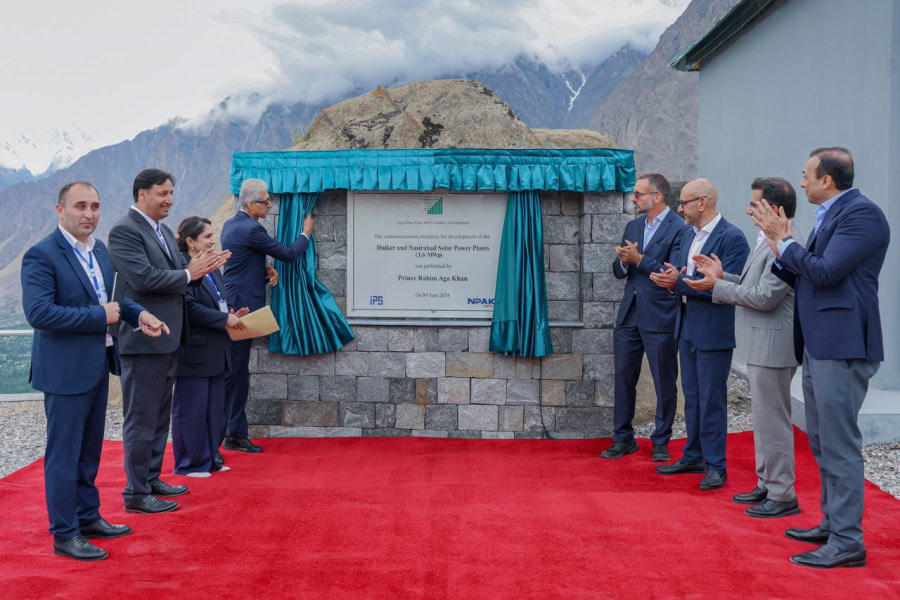HUNZA – Prince Rahim Aga Khan inaugurated the development of Duiker Phase II and Nasirabad Solar Power Plants with a total capacity of 3.6 MWp in Hunza, Gilgit-Baltistan.
Phase I of Duiker Solar Power Plant, which has a generation capacity of 1MWp and 0.6MWh battery storage, commenced operations in November 2023, increasing the daily power availability for more than 11,000 people, from 10 to 17 hours in summer and from 4 to 9 hours in winter.
When commissioned in November 2024, Duiker Phase II will expand generation capacity from 1MWp to 1.6MWp, and battery storage from 0.6MWh to 1MWh, providing increased electricity to an additional 8,760 people. Crucially, Duiker replaces diesel power generation, leading to an annual reduction of 1,100 metric tons of CO2 equivalent.
A2MWp Solar Power Plant with 1MWh battery storage will also be constructed in Nasirabad in lower Hunza. This will supply power to an additional 23,400 people. The Nasirabad Solar Power Plant is expected to be commissioned in June 2025.
NPAK Energy Limited, a subsidiary of Industrial Promotion Services (IPS), the industrial and infrastructure development arm of the Aga Khan Fund for Economic Development (AKFED), is investing $6m in these projects. Project financing blends equity, sustainable debt, and grants. An additional $14m has been secured from development partners to enhance the region’s energy infrastructure.
Over the next five years, NPAK Energy will mobilise additional investments in clean, sustainable sources of electricity across Hunza and surrounding areas, addressing the region’s acute energy deficit while contributing to global efforts to mitigate climate change. The company is committed to improving public service delivery by creating a sustainable, self-reliant utility operation that catalyses economic opportunities and job creation. It models an innovative and efficient public-private partnership that contributes to sustainable development.










